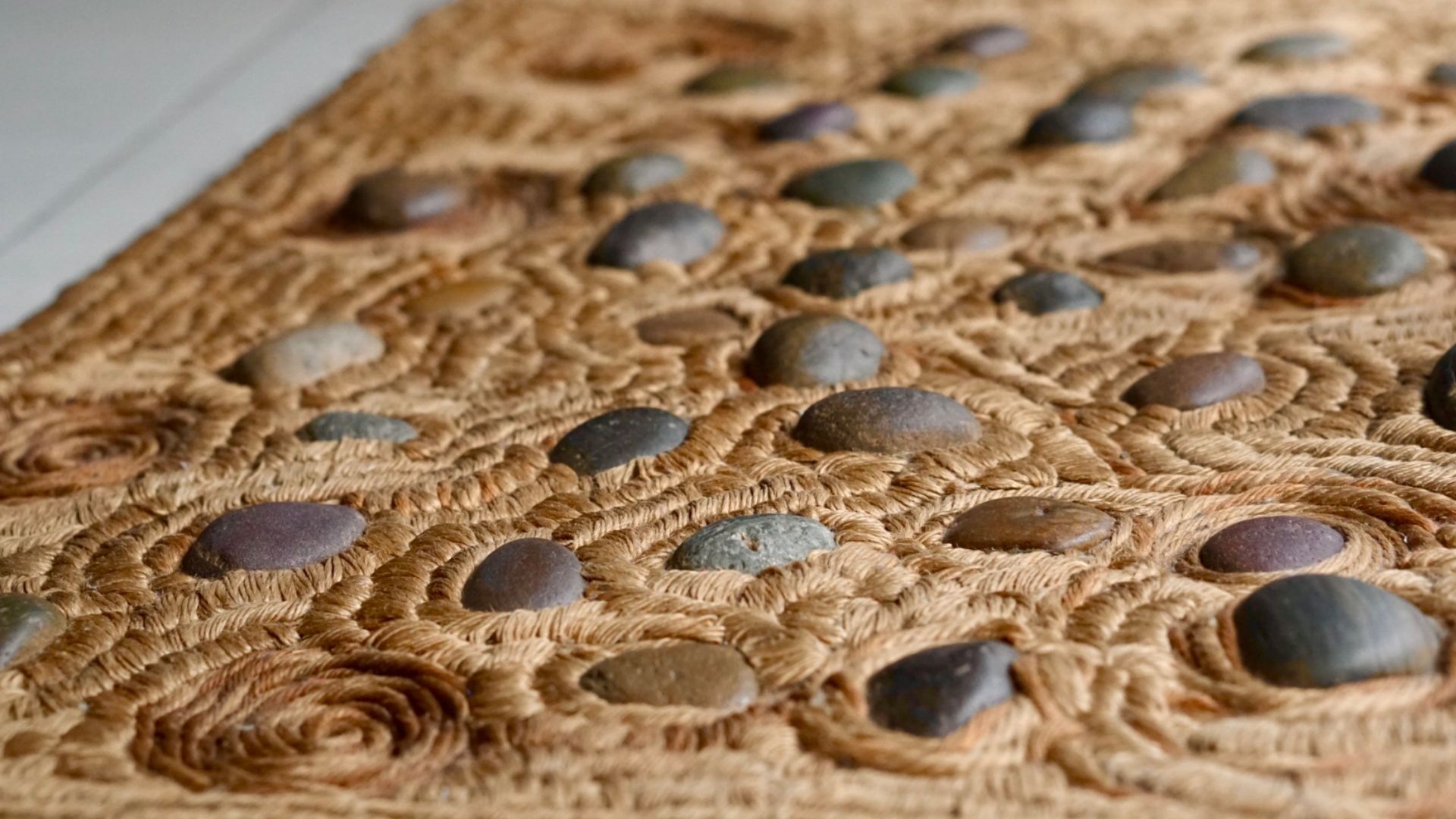Slow Hand Design exhibition showcases a sustainable evolution of Thai design
We spoke to the show’s curator, Eggarat Wongcharit, exhibition designer, Dots Design Studio, and participating brand, Deesawat, ahead of the show at Milan Design Week next month.

The Slow Hand Design exhibition returns to Milan Design Week this year to present an international showcase of recipients of the DEmark award, Thailand’s most prestigious award given in recognition of outstanding Thai-design products.
Hosted by the Department of International Trade Promotion (DITP), Ministry of Commerce of Thailand, as part of the prestigious Superstudio showcase, the exhibition will celebrate Thailand’s creative industries with a diverse selection of projects that feature:
- sustainable textiles
- eco-mobility
- green manufacturing techniques
It forms part of a larger initiative organised by the DITP to promote Thai designers and is considered a driving force when it comes to introducing upcoming talent to an international audience.
Curated by industrial designer and CEO of local furniture brand Craft Factor, Eggarat Wongcharit, the title of the exhibition was chosen to encapsulate the unique amalgamation of industrial technologies and handicraft techniques that define the country’s creative output.
“In most massive industries, you can still see the combination of machine-oriented manufacturings fused with handicraft technologies,” he says. “As a person trained to visualise tendencies of global behavioural consumption, I tend to see this potential as a pro rather than a con.”

The exhibition made its debut back in 2012 as an opportunity to promote global exports of design and lifestyle products.
This year the theme is Uncertainty=Certainty, which explores the impact the COVID-19 pandemic has had on design and human behaviour.
“Before we were confronted with this situation, the crisis of saving the earth was promoted. Then, the lockdowns and its general rules and regulations changed our day-to-day and brought uncertainty to the public,” says Wongcharit.
“The exhibition proposes certainty as a resolution to this uncertainty as it is the present policy of our government to further standardise and elevate the industries in Thailand.”
“The pandemic is in a way a by-product of nature conflicting with humans,” he adds. “As such, the BIO/CIRCULAR/GREEN (BCG) principles for the global environment are now the direction guiding local export manufacturers in Thailand.
It’s an attempt to accomplish and aim for sustainable approaches in design and production. Hence, we can help spare the borderline of the future invasion between nature and humans.”
The DITP has chosen products to showcase a “new normal” in Thailand’s manufacturing capabilities, including a personal hygiene concept featuring balls of charcoal balls that work to neutralise odours and a range of decorative tableware made using rice husks and coconut fibres.
“Upcycling or recycling waste exists in the local wisdom of craft making in Thailand,” says Wongcharit. “The water-hyacinth, a type of weed in Thailand, is a great example. Local artisans have been turning them into furniture and home accessories for decades.”
“As a result, water-hyacinth industries have fully developed and made up a large global export, bringing a massive income to the local community. This is how we get rid of waste and turn it into taste.”

On display there will be 45 products by designers and design studios that are representative of this attitude because of their promoting the Bio-Circular-Green economy or BCG design direction.
They include Bangkok-based wood maker Deesawat, which offers contemporary green furniture pieces; and Dots, a multidisciplinary design studio that also designed the exhibition scenography.
Ahead of the exhibition, we spoke to both to get a sneak peek of what to expect at the Slow Hand Design exhibition. See our conversations below…
Deesawat
DesignWanted: Congratulations on receiving recognition from the DEMark awards. Before we go into more detail about your exhibit, can you tell us how you feel and why it means so much to be part of this platform as a designer in Thailand?
Deesawat: DEmark is unlike any other design award in the world because it does so much concern in terms of sustainable craftsmanship and innovation.
We do believe that the world today needs more than just a beautiful product — it needs something that can support nature and creativity at the same time.

DW: This year you will exhibit the Parallel, a teakwood furniture collection that demonstrates more sustainable practices when it comes to using teakwood. How?
Deesawat: Our teakwood comes from a sustainable source but in general, teakwood furniture production uses large pieces of the material…so we always end up having a small size of timber which has less value and cannot be used in our production.
So, we decided to use the smallest size of timber that we have (1 x 1.5 inch) to create furniture. The project called Maximise Wood is a collaboration with a UK-based designer and includes a series of benches and tables made from long thin strips of teakwood.

DW: You have also found ways of repurposing waste from the production of teak wood – can you tell us a little about that, please?
Deesawat: In Milan, we will also show the DEWA DEWI collection which incorporates bark as part of the product design. This is one of the ways that we try to maximise the usage of the raw material. Furthermore, we are also in the development phases of a project that uses teakwood powder and dust, combining this waste with other organic materials like recycled rubber, leather and bioplastics.
We have been doing a lot of experiments with a partner and friend to find the best use of the waste we create.
One of the best examples is an eco-flooring that uses all the offcuts and mixes them together. This item has just recently been given the Circular Label certification in Thailand.

DW: Ahead of Salone when the exhibition will go on display for an international audience to enjoy, how would you define Thai design DNA? What do you want the rest of the world to know about the design industry in Thailand?
Deesawat: Thai designers are unique in terms of craftsmanship because Thailand has a long history of crafts in all aspects. In terms of materials, we are lucky that we have so many variations of natural resources that we can play around with.
Thanks to the DITP and its support designers, these experiments can be showcased at an international event and get all the proper feedback from visitors, which designers will benefit from when it comes to new product development.
Thai design is humble and loud; quiet and playful; simple and colourful. There are so many contrasts in Thai design itself that the rest of the world can appreciate and enjoy.

DOTS Design Studio
DesignWanted: What can visitors expect from this year’s Slow Hands Design exhibition?
Dots: There will be more than 45 design works with different perspectives that relate to the Bio-Circular economy.
We have split the exhibition into 2 parts—DEWA DEWI includes collaborations between designers and local manufacturers and Talent Thai presents designers selected from DEmark award winners linked by common concepts.
All works propose ways in which we can adapt to our lifestyles post-pandemic and benefit the planet.
DW: And congratulations on receiving a DEMark award for your own contribution to the show. This year X Stallon EV will be on display – can you tell our readers what this project entails?
Dots: We collaborated with local motorcycle brand Stallions to create Tanya, an electric motorcycle that reduces emissions and proposes a circular design cycle when it comes to maintenance.
Our environmentally friendly production processes include lightweight and 100% recyclable aluminium and use and spare parts of conventional motorcycles to reduce unnecessary production.

When it comes to specs, Tanya features a 5KW hub motor and can reach speeds of up to 120KM/hr.
There are 2 models available: Tracker and Naked, which are powered by 40 Ah and 60 Ah batteries respectively for standard range and long-range riding.
The Driving distance per charge is 100- 200 km per single charge.
DW: How do you feel and why does it mean so much to be part of this platform as a designer in Thailand?
Dots: This is an amazing opportunity to exhibit at Milan design but also in the larger Slow Hands design space. We have been able to visualise our ideas and reflect our thinking methods to the public and the world.

DW: How would you define Thai design DNA? What do you want the rest of the world to know about the design industry in Thailand?
Dots: Thai designers share a different life and vision shaped by the surrounding metropolis, and countryside and charged by a rich history and culture. We absorb both east and west ways of thinking. Thai design stands for craftsmanship and artisanal skill.
Deesawat and Dots are just a sample of the designers that will showcase their work as part of the Slow Hand Design exhibition.
Other projects include a range of products made of rice husks, pineapple fibres, coffee grounds, and all organic compositions that are shifted toward the direction of being green, biological, and circularly recyclable without harming the global environment.
“After understanding the intent of this exhibition, I hope that the public will obtain awareness of saving our global environments and be more concerned about material use and production processes that cause no harm to the earth,” says Wongcharit.
“When everyone really takes it as a severe issue, I hope that we will live better in a cleaner world.”
“I’d also like the world to understand that Thailand has shifted against developing the quality of modern design from its own deep roots of traditional design wisdom for many generations,” he adds. “With such a different approach, Thai products and the quality of their craftsmanship reflect a distinctive characteristic that is completely unique from anything else.”
The exhibition will take place at MY OWN GALLERY Superstudio Più, Via Tortona 27, Milan. It is open from 6 – 12 June 2022.
It is organised by the Office of Innovation and Value Creation and Thai Trade Centre Milan, Department of International Trade Promotion, Ministry of Commerce, Royal Thai Government.









